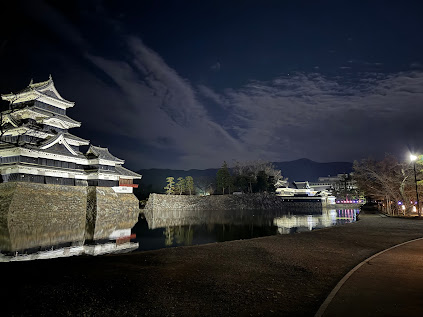So British Empire-centric have my travels been over recent years, a reckoning with another world was required for a corrective to my understanding of global history. For too long have I been accustomed to seeing the world through colonial eyes. I need a shock, I need to be taken down a peg, I need to see some place that never experienced 1066 and All That. When Henry V was on the throne, what was happening here? Answer: it was the Muromachi period in which Japanese society was way ahead of Britain’s - militarily, economically and trade wise. I can recommend Peter Frankopan’s alternative history of the world in his highly readable and educative book, The Silk Roads. In it he puts Britain on the very Western perimeter of cultural, political and military developments fifteen hundred years ago; we were very late into the game. I was brought up with Philip’s School Atlases depicting much of the world’s landmass in pink. Friends who have visited and even worked in Japan helped prepare me for a totally different people and culture.
Just a brief note on those wonderful people, the Irish. Britain would not be the country it is today without them. Oh begorrah no. Through the second millennium AD of Britain’s development the Irish played a significant role through filling the ranks of our regiments in our global wars, remaining behind to help found new British communities around the empire and establishing a chain of Irish pubs where I can order a pint of Guinness - there’s one next door to our hotel in Kyoto. (Now they are winning all the British literary awards. But we did beat them this year at Twickenham.)
We have only been in Japan for six days and one of the noticeable differences with Britain is the cleanliness of the cities. As we left home last week The Times newspaper carried an article about the shameful quantities of litter on British roads and in the countryside. Another article spoke of a landowner restricting access to his land because visitors have no idea about closing gates, dogs off the lead (let alone leaving bags of poo hanging in trees) and discarding drinks cans. Here in Tokyo and Kyoto the streets are devoid of any trash.
The courtesy of all Japanese people we have met is humbling. They are unfailingly polite and smiley. In the awesome and scarily huge Tokyo station, where the Shinkansen (bullet trains) speed in to each platform every 6 minutes, there are thousands of citizens rushing past you at all times on the platforms and concourses. You feel you’re going to have a human collision at any moment but, like bats, we swerve to avoid a hit at the last moment.
As we head out of the big cities into the countryside we realise that Tokyo is very Western in its built environment even if some buildings are icons of Japanese style. Built on the North American grid system the streets in downtown Tokyo are home to the ubiquitous brands we see on the streets of most la Western cities. A little bit of history tells me that the Americans occupied Tokyo after the firebombing of the city destroyed over eighty per cent of its buildings in WW2. Japan had never been occupied so the arrival of General MacArthur in 1945 was a curiosity to say the least. For various reasons the Japanese economy took off under the guidance of American influence and you can see those influences today. In a week when the US and Japan have signed a new security pact I don’t think this influence will end anytime soon.
Next weekend we head for Hiroshima. Having been underwhelmed by the movie Oppenheimer, we shall see an open field in the Peace Memorial Park where Oppenheimer’s bomb landed. I expect a much more powerful and cultural experience than that gleaned from the screen.
Sayonara for now.


